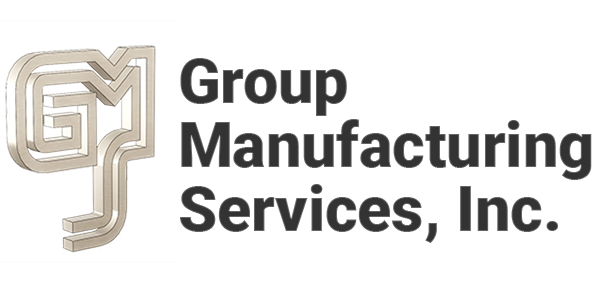
One moment please...

One moment please...

What are the full capabilities of the contract manufacturing service you are considering?
At our 72,000 sq. ft. state-of-the-art Tempe manufacturing facility we are well-equipped to handle most precision sheet metal and precision CNC machining fabrication projects.
Our product design division offers engineering and quick-turn prototyping services and will work with you one-on-one to bring your product or concept to life.
In-house finishing, robotic welding, laser cutting, CNC machining, and milling, we are truly a one-stop-machine-shop.
Having the vast majority of capability under one roof helps us reach your goals faster by lowering costs and shortening lead times.
How does a contract manufacturing service guarantee quality?
A current ISO Certification proves that a manufacturer has done its due diligence in conforming and placing specific Quality efficiencies in place.
GMS is AS9100 Rev. D: 2016 accredited.
AS9100 AS9100 Rev. D is an aerospace standard based on the ISO 9001 quality system requirements.
This means our processes are controlled, and documented and they can serve a purpose that goes beyond any checks and balances put in place over a company that is not ISO Certified.
Beyond the question, “How does contract manufacturing work?” the discussion very quickly turns to “How do I select a contract manufacturing partner?”
Selecting a contract manufacturing partner is a critical process and should not be taken lightly.
Large-sized manufacturers, small-sized and everything in between crowd the manufacturing market space and compete for your attention, and more importantly a slice of your manufacturing budget.
What are some of the metrics you can use to sort the list of manufacturing companies, so you end up with the best match for your company?
Ron Keith, Chief Executive Officer for Riverwood Solutions has put together a great list that attempts to identify some of the ‘myths’ surrounding the process of selecting a contract manufacturing partner.
What is Design for Manufacturability or DFM?
DFM is a vitally important part of the manufacturing process that is overlooked by some contract manufacturing services.
DFM is about creating the most optimal plan, taking into account every possible process step, and weighing each variable against one another to be sure the final production process plan will be the ‘best’.
By using DFM techniques we can conserve time and save on your investment.
Finding methods to optimize the overall design to complement capability and the ultimate desired outcomes can assist in streamlining the entire production process while not sacrificing a part, component, or assembly’s integrity.
Open lines of communication throughout the entire manufacturing process are extremely important.
At GMS, we consider open customer communication to be vital to the relationship.
From design and manufacturing to packaging and delivery, at each stage of the process, our clients are the ‘first to know’ what is going on.
Open, honest, and transparent communication tends to build trust, and more often than not builds a lasting working-relationship,
For contract manufacturing to be effective, it needs to get there just in time, every time.
Time to market, time to production, and time to delivery.
But customers don’t want to hear excuses, they want to know their projects are moving along the process smoothly, as planned, and will deliver on-time, period.
At GMS that’s what you get, your products are manufactured and delivered on-time, on-schedule, and on budget.
When it comes to contract manufacturer selection, what’s the first step?
It’s helpful when working with a contract manufacturer to have a complete understanding of all the details associated with any given project.
So it stands to reason that the first step involved with contract manufacturer selection is to completely and accurately define the scope of the job.
Assessing the necessary factors involved with manufacturing a metal part will give you insight when it comes to selecting a manufacturing company that can meet your individual needs.
The following itemized list contains all the factors involved with manufacturing a part.
Use this list to access your requirements, and help guide you in the process of contract manufacturer selection.
By following the outline presented here and gathering all the specific details of your manufacturing project in one place, it will give you as well as a potential manufacturing partner a head start in the contract manufacturer selection process.
Beyond the question, “How does contract manufacturing work?” the discussion very quickly turns to “How do I select a contract manufacturing partner?”
Selecting a contract manufacturing partner is a critical process and should not be taken lightly.
Large-sized manufacturers, small-sized and everything in-between crowd the manufacturing market space and compete for your attention, and more importantly a slice of your manufacturing budget.
What are some of the metrics you can use to sort the list of manufacturing companies, so you end up with the best match for your company?
Ron Keith, Chief Executive Officer for Riverwood Solutions has put together a great list that attempts to identify some of the ‘myths’ surrounding the process of selecting a contract manufacturing partner.
BY RON KEITH FOR INDUSTRYWEEK
With so much of today’s electronics manufacturing outsourced, my team at Riverwood Solutions ends up spending a lot of time inside various contract manufacturing facilities. Sitting on a plane today heading to yet another contract manufacturing (CM) visit, I started tallying the number of CM factories, and the number of different countries my team has been in over the past year visiting CMs. I was able to quickly rattle off CM factories in 24 different countries on 5 continents that were visited by just the consulting arm of Riverwood Solutions in the past 12 months.
There are a number of different reasons why we spend so much time in outsourced manufacturing facilities. The one that I want to discuss here is the process of selecting an outsourcing partner or contract manufacturer. For an OEM that makes its living selling a physical product, the selection of a contract manufacturer to build that product is a weighty decision. Yet there are so many misconceptions and misplaced notions about what is really important in the selection criteria. The following is a list of some of the most common myths and misconceptions we see held by OEMs about selecting the right contract manufacturer.
10) “If I select the right contract manufacturing partner everything will be perfect.” Contract manufacturing is a difficult, competitive, low-margin business – and it is one that needs to be actively managed. OEMs that get the best results, and that express the highest level of satisfaction with their CMs, are ones that structure their own operations organization to effectively manage outsourced manufacturing.
The advantage contract manufacturing offers is all about one thing, and that is maximizing profit.
The business that is outsourcing will try to attain the highest quality product for the lowest possible price.
The company that is performing the outsourcing is trying to establish a market share and base price for quality services performed.
In a perfect world, a balance is achieved, and everyone makes a profit at the end of the day… but there can be pitfalls along the way.
Check out this article by WISEGEEK that covers some of the pros and cons of contract manufacturing.
BY WISEGEEK
Contract manufacturing refers to a situation where a business will engage the services of an independent party to perform a specified duty for the business. In terms of manufacturing, contract manufacturing refers to a situation where a manufacturer will engage the services of an independent party to perform a specified job. There are various reasons for this type of engagement by manufacturers, all of which involve the maximization of profit. The process of contract manufacturing also has some negative considerations that include the risk of uncertainty and lack of control over the process.
The management of companies in general realize that the best way to achieve the best output is to specialize in that in which they are most proficient. In economics, this theory is known as “comparative advantage,” meaning that even though two companies can produce the same item, one of them is able to produce it in less time, at a cheaper rate or to a higher level of standard than the other. This is the major driving factor behind contract manufacturing. A company that is less equipped to handle a particular aspect of a production process or even the whole process for a particular item will be better served by outsourcing the manufacturing or production of that item to another company that is better equipped to do so.
In this sense, contract manufacturing allows companies to save costs by manufacturing a particular item at a cheaper rate than what it would cost them If they decided to undertake the manufacturing process themselves. Another advantage of contract manufacturing is the fact that it allows the company doing the outsourcing to shave some time off the whole process, giving them quicker returns and turnovers. Where a company is less effective than another in manufacturing an item, contract manufacturing will allow it to concentrate on that in which it is the most efficient.
http://www.wisegeek.com/what-are-the-pros-and-cons-of-contract-manufacturing.htm
Where quality meets precision.
With over 30 years of experience in the contract manufacturing business, Group Manufacturing Services, Inc. a Tempe, AZ sheet metal job shop, will get the job done on time, every time.
See how we outperform the other contract manufacturing companies!